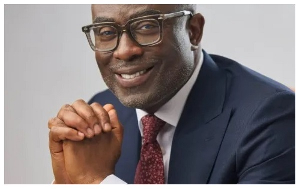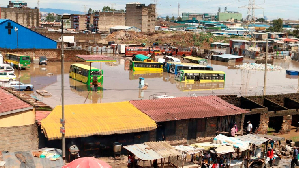- Home - News
- TWI News | TV
- Polls
- Year In Review
- News Archive
- Crime & Punishment
- Politics
- Regional
- Editorial
- Health
- Ghanaians Abroad
- Tabloid
- Africa
- Religion
- Election 2020
- Coronavirus
- News Videos | TV
- Photo Archives
- News Headlines
- Press Release
General News of Friday, 26 September 2014
Source: GNA
African leaders urged to give backing to research
African leaders have been urged to give the needed backing to research scientists to come out with local solutions to health and other development challenges bedeviling the continent.
Mr Eric Adu, Sunyani Municipal Director of the National Commission for Civic Education (NCCE), said the over-reliance on the outside world for answers to the continents problems needed to end.
He said Africa should not go to sleep and wait on others, when it has everything human and raw materials to change the situation of the people.
Mr Adu was speaking at a three-day training of trainers’ workshop to strengthen the role of African Peer Review Mechanism (APRM) District Oversight Committees (DOCs) in promoting good governance in Ghana underway in Kumasi.
It is being attended by 60 participants drawn from Adansi South and Sekyere West in the Ashanti, Wenchi and Kintampo North in the Brong-Ahafo and Wa West and Sissala West, in the Upper West Region.
The European Union (EU) and Hanns Seidel Foundation are jointly funding the programme with the National African Peer Review Governing Council (NAPRM-GC) and the NCCE as organizers.
Topics lined up include APRM process in Ghana, Adult teaching and learning techniques, Government administration, decentralization, and local government structures, and Resource mobilization and management.
The participants would also deliberate on APRAM research methodologies, Citizens red card and Mobile data collection techniques Social mobilization, Participation and inclusion of vulnerable and Group management and dynamics. Mr Adu emphasized the need for political leaders to do regular self-assessment of their performance to promote accountability and good governance.
He encouraged the participants to collaborate with other stakeholders to sensitize and educate the people on the main purpose of the APRM to deepen the country’s democracy.
APRM is a voluntary self-assessment instrument adopted by the African Union (UN) to improve governance in member states, and affords citizens the opportunity to promote the development and adoption of policies and standards that lead to the attainment of political stability, accelerated economic growth, sustainability development and improved participation in sub-regional and continental economic activity.
Opinions









